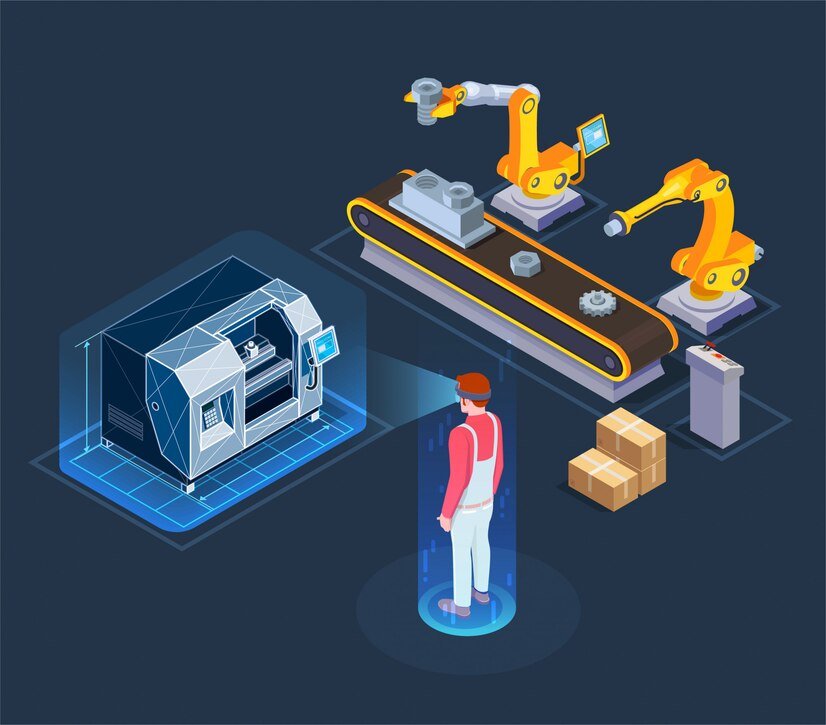Enhancing Precision: How CMM Revolutionizes Aerospace and Automotive Manufacturing
Coordinate Measuring Machines (CMMs) play a vital role in modern manufacturing, offering unmatched precision in quality control and inspection. These advanced instruments utilize probes to capture the physical and geometrical characteristics of objects with incredible accuracy. Their ability to measure intricate shapes and contours at the micron level has revolutionized industries where precision is essential, particularly aerospace and automotive manufacturing.
The Evolution of CMM Technology in Aerospace and Automotive Industries
The journey of CMM technology in the aerospace and automotive sectors is a testament to the rapid advancements in manufacturing precision. In the early days, manual measurement tools were the norm, but as the complexity of parts increased, so did the need for more sophisticated measurement techniques.
The introduction of CMMs in these industries marked a significant turning point. Initially, CMMs were large, stationary machines limited to laboratory settings. However, as technology progressed, more compact and portable options became available, allowing for on-site measurements and increased flexibility in production environments.
Today, there are many different types of CMMs, including bridge, cantilever, gantry and horizontal arm, each designed to meet specific manufacturing needs. These advancements have not only improved precision but also streamlined production processes, enabling manufacturers to achieve higher efficiency and consistency in quality control.
How CMM Enhances Precision in Aerospace Manufacturing
In the aerospace industry, where safety and reliability are non-negotiable, Coordinate Measuring Machines (CMMs) play a vital role in achieving the highest levels of precision. The intricate geometries and ultra-tight tolerances of aircraft components require advanced measurement solutions that deliver accurate, repeatable results.
Aerospace Components Measured with CMMs:
- Turbine blades – Ensuring aerodynamic efficiency and optimal engine performance.
- Engine components – Verifying critical tolerances for reliability and durability.
- Airframe structures – Maintaining structural integrity and precise alignment.
- Landing gear assemblies – Guaranteeing proper function under extreme loads and conditions.
Revolutionizing Automotive Production with CMM
According to Statista, the global automotive manufacturing industry is a multi-trillion-dollar sector, and precision is at its core. To meet the ever-growing demand for accuracy, efficiency, and quality, manufacturers have widely adopted Coordinate Measuring Machine (CMM) technology. From panels to engine components, CMMs have become essential tools in modern vehicle production.
Applications of CMMs in Automotive Manufacturing:
- Body measurements – Ensuring structural integrity and alignment of vehicle frames.
- Powertrain component inspection – Verifying precision in critical engine and transmission parts.
- Interior and exterior trim fitting – Enhancing aesthetics and functionality with precise component placement.
- Chassis and suspension alignment checks – Improving vehicle stability and performance through accurate measurements.
Key Features to Consider When Choosing a CMM Manufacturer
When selecting a CMM manufacturer, it’s essential to consider several key features that will impact the performance and suitability of the machine for your specific needs.
Here are some crucial factors to keep in mind:
Accuracy and Repeatability
Look for manufacturers that provide detailed specifications on the accuracy and repeatability of their machines. This information is crucial for ensuring that the CMM can meet your measurement requirements consistently.
As mentioned, higher accuracy and repeatability are especially important in industries like aerospace and automotive, where even the slightest deviations can impact performance and safety.
Measurement Volume
Consider the size of the parts you’ll be measuring and choose a CMM with an appropriate measurement volume. Some manufacturers offer a range of sizes to accommodate different needs. It’s also important to assess whether the machine can handle future scalability requirements as your production demands evolve.
Software Capabilities
The software interface and functionality can significantly impact the usability and efficiency of your CMM. Look for intuitive interfaces, comprehensive reporting features, and compatibility with your existing CAD/CAM systems. Advanced software with automation and AI-driven analytics can further enhance precision and streamline data processing.
Probe Options
Different measurement tasks may require various probe types. Ensure that the manufacturer offers a wide range of probes and sensors, including touch-trigger, scanning, and optical options. Flexible probe configurations can improve adaptability for complex geometries and intricate part inspections.
Service and Support
Consider the manufacturer’s reputation for customer service, training programs, and ongoing technical support. A responsive and knowledgeable support team can be invaluable in maximizing the performance of your CMM. Additionally, access to timely maintenance services and spare parts availability can minimize downtime and maintain operational efficiency.
The Future of Precision Manufacturing with CMM Technology
The integration of Coordinate Measuring Machines (CMMs) has revolutionized precision manufacturing, making them indispensable in the aerospace and automotive industries. These advanced measurement tools ensure unparalleled accuracy, improve efficiency, and uphold the highest quality standards across production processes.
With both industries projected to reach trillions of dollars in market value in the coming years, the role of CMM technology will only expand.
Future advancements will focus on increased automation, faster inspection times, and enhanced compliance with stringent industry regulations. As manufacturers push for greater efficiency and precision, CMMs will continue to play a pivotal role in shaping the future of high-performance production.






